Road 2 Elsewhere, Excerpt #39: What the Hell is Water?
David Foster Wallace points out one of the limitations of privilege: Not understanding you have it.
I HAD ANNOUNCED MY INTENTION TO QUIT PARIS to my journal, but I still had five days left there, including my birthday—a grand occasion to dramatize myself and the Quest of My Life.
“29 October: Happy birthday to me!”
“And this is my 22nd birthday,” I wrote, clearing my throat. “I now commence the battle to take command of my own life. I must expect the outrageous if I am to fulfill my goals. There: To the next year. May it be filled with intense living. I’m with me all the way.”
A few weeks earlier, I’d set down this bit of self-inflation, and brought all my friends along with me. If I had understood white privilege back then, I’d have gone ahead and smacked myself after I wrote it.
“A letter from [college friend] Starr makes me think about my talented group of friends,” I wrote. “I am startled by the fact that certainly many people have the talent necessary to achieve their own form of greatness, but perhaps they fail to expect and commit themselves to fruition. Because I set my goals irresistibly high, others around me might, and we share the expectation of success. And thereby our attitudes determine/decide the outcome. Keep your eyes raised, Peter. If you don’t look down you will rise naturally. Which reminds me of high speed skiing, where fear of a fall brings the fall about. I will never look down from this perch again. I must rise.”
Where did all that come from?
Privilege is part of it, to be sure.
Long before my Paris jailbreak, a high-school girlfriend and I were talking about a Beach Boys concert we wanted to attend in New Haven. The obstacle of ticket price came up, which then turned to my seemingly obstacle-free position in life, relative to hers, and to my classmates.
“It always seems that you have a little more money than everybody else,” she told me.
I was shocked by that idea. I never thought about money, which you don’t have to if your mom is fishing $10 bills out of her wallet to subsidize your ice-cream-sundae habit
“There are these two young fish swimming along,” David Foster Wallace told a graduating class at Kenyon College, “and they happen to meet an older fish swimming the other way, who nods at them and says, ‘Morning, boys, how's the water?’ And the two young fish swim on for a bit, and then eventually one of them looks over at the other and goes, ‘What the hell is water?’”
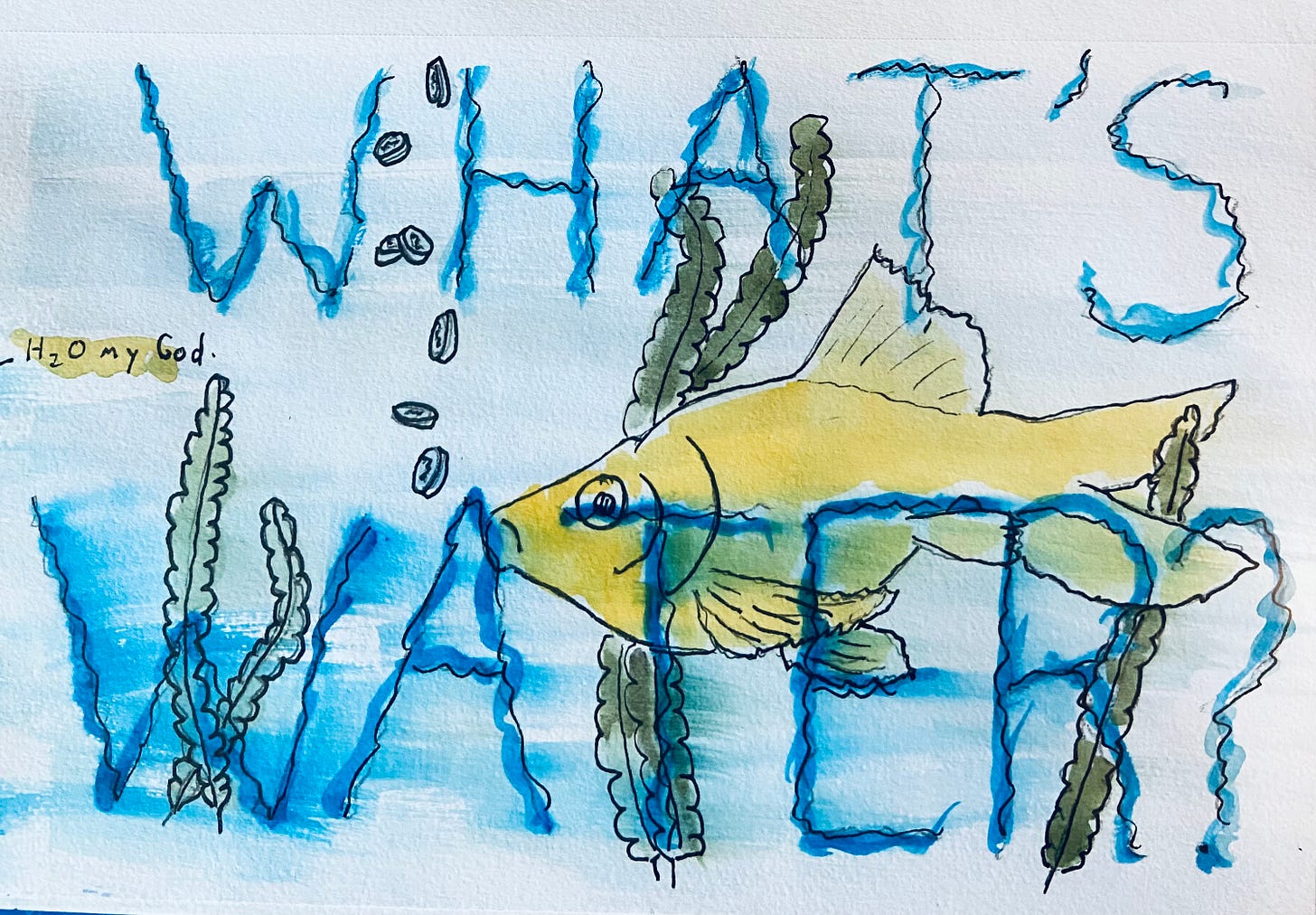
I was one of those young fish, fully concentrating on the swimming, not the nutrient-rich environment around me. I don’t know what my dad’s take-home pay was, from his corporate-accountant job at General Electric. But I didn’t have to. He entertained only two indulgences: family travel, and the educations of his four sons. We lived in a house that was too small for six people, but my brothers and I graduated from college debt-free, and we regularly escaped our tiny home for spectacular drives into the Met, in New York, or off to Bermuda for a week, or off to the opposite side of the U.S. or the world.
Once, as we stagnated in a traffic jam on the George Washington bridge, he swept his hand across the urban expanse in front of our windshield: “Ninety-nine percent of the people in the world,” he exclaimed, “would consider this the most spectacular thing they’d ever done in their whole lives, just to drive across this bridge.”
He even managed to make an adventure of our end-of-the-day drives to pick him up from his city commute, at the Westport, Connecticut, train station.
My brother, as the escape driver, would sit at the wheel of our illegally parked car, right outside the station, the engine poised to jump. I was the mule, assuming a position next to a particular sidewalk crack on the train platform. The 6:30 train from Grand Central would arrive with a huff, and our dad would be standing nose-to-sliding-doors of the train’s third car, which always stopped at that same crack.
When the doors opened, my father would lateral his briefcase at me, and the two of us would sprint down the station stairs, and into the street to the waiting getaway car. My dad would hop behind the wheel, and we’d roar off toward the Merritt Parkway, more like bank robbers than commuters.
That’s privilege for you: Freedom to concentrate on life’s adventures, rather than its limiting factors.
*On alternating weekends I run excerpts from The Road to Elsewhere, my coming-of-age-travel-memoir-with-funny-drawings. (The first entry is here. Most recent one is here. Or dive in here, here, or even here.) It details the story of my road through Paris, London, and god help me, Zagreb, in search of the ultimate destination: a life worth living. The story so far: Young Peter has arrived in Paris, occupied a dorm room at the Alliance Française language school, tiptoed out onto the Boulevard Raspail and the Paris Metro, and made the first steps on the road to elsewhere. If it’s too much to read, just look at the illustrations. They’re my favorite part, too.

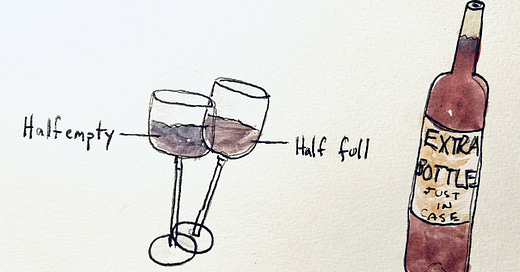


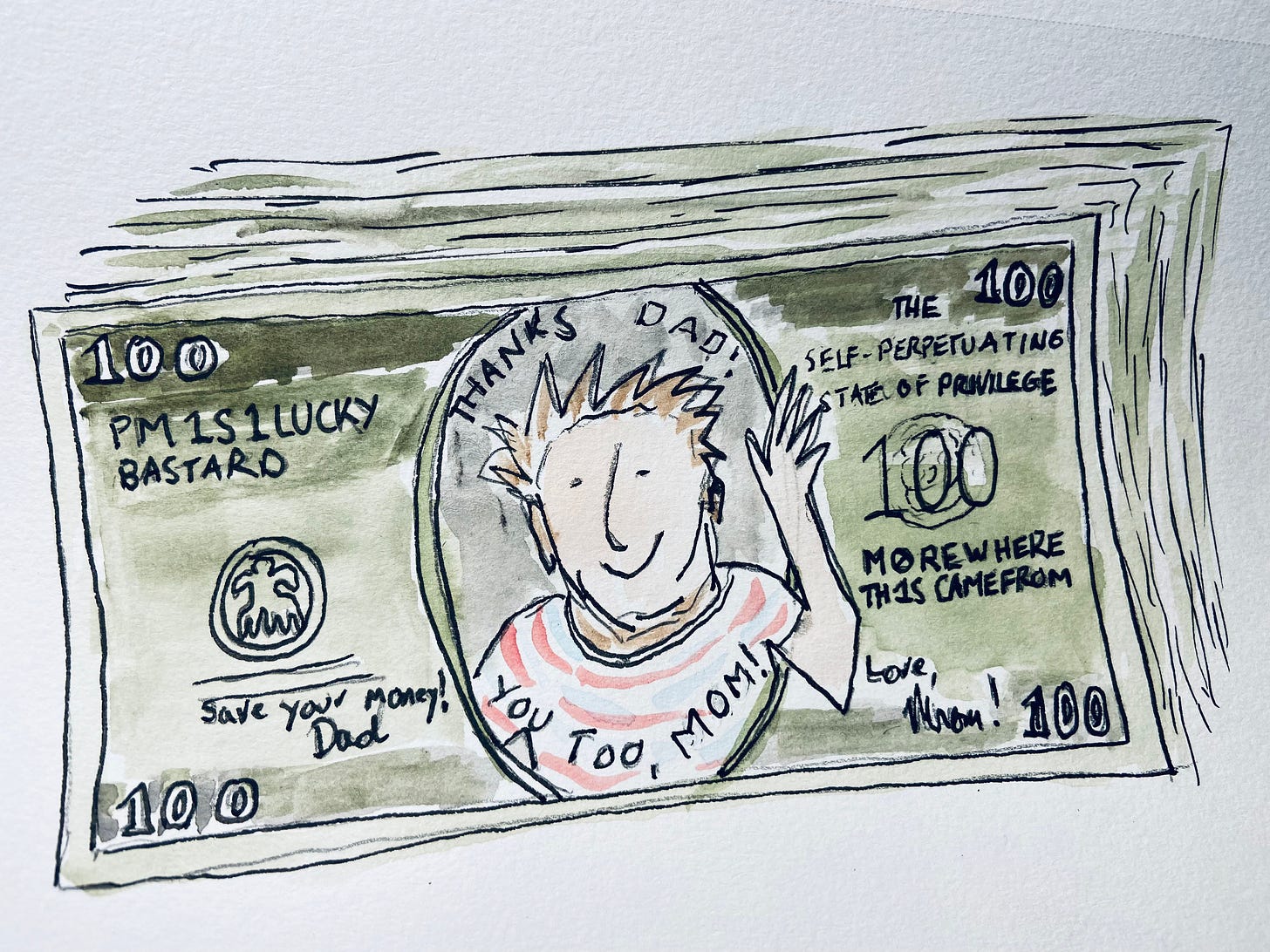
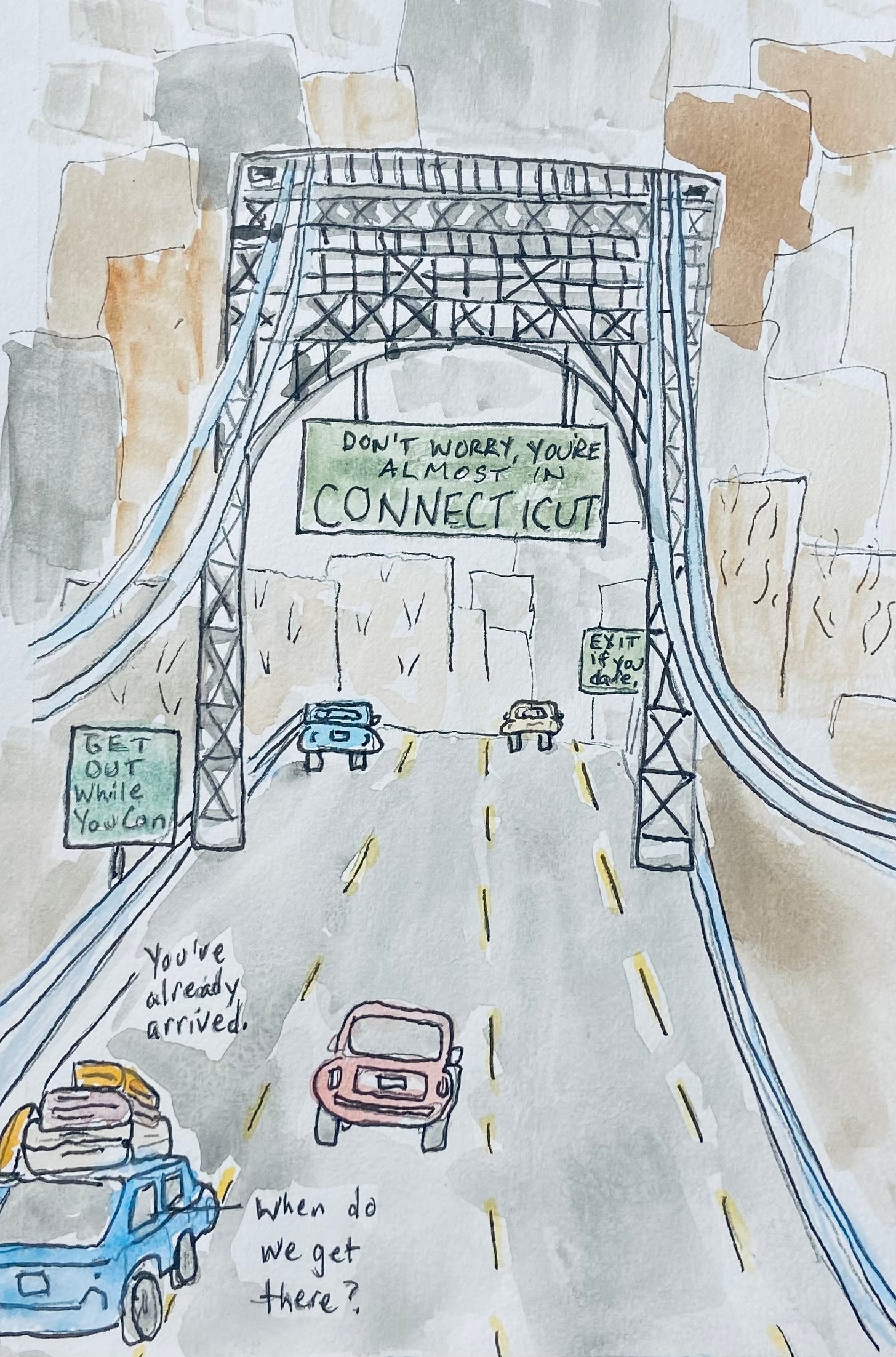
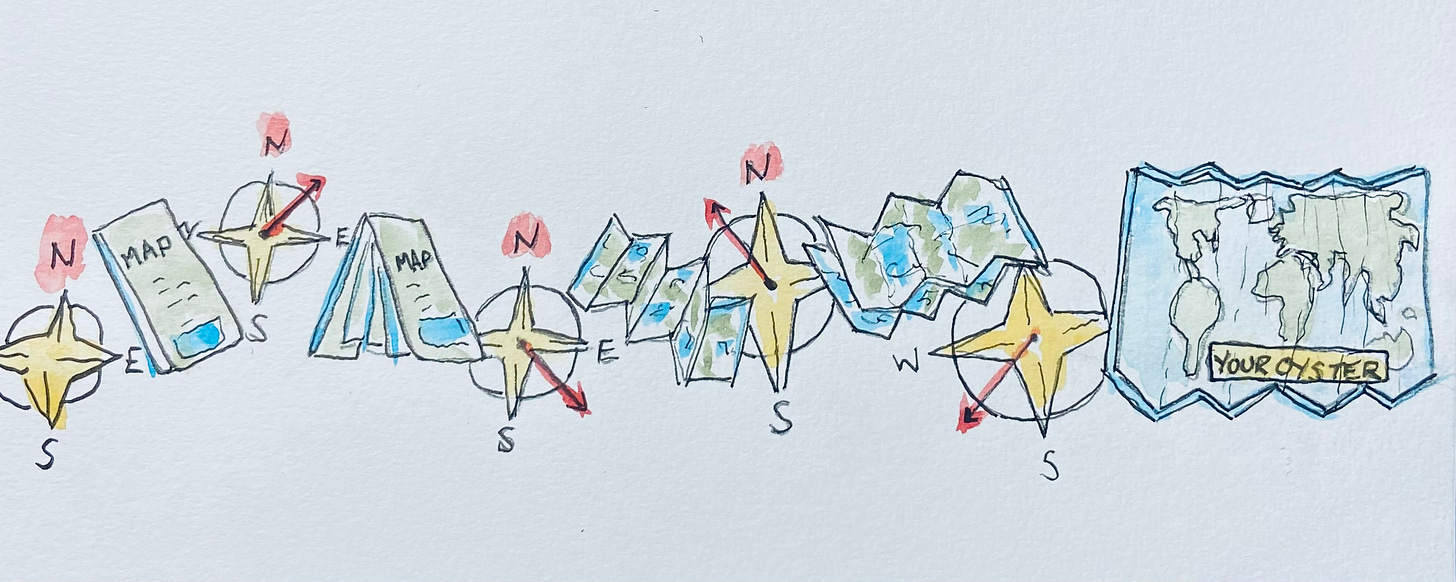

You know what I heard? I heard The New Yorker was hunting for you to do illustrations for them!
Such a delightful read yet again! I missed the last two and I must go back to read them. Our children and my husband and I constantly talk about privilege. I talked a lot about it in my book about my father. The lack of privilege makes you hungry and it always makes you wonder what "else" you could have been. My father's tight financial situation (same true of my husband) frustrated me sometimes and I know it informed everything I wanted to do for my children. Violin lessons, dance lessons, all sorts of extracurriculars that were simply not available to me in India in the 70s because dad simply could not afford them. But then the same lack of privilege made him look for opportunities around him. His resourcefulness made my life full. It took me to a life in Africa. So there. I look forward to your memoir. I loved my year in Paris and I'm curious about your experiences. Thanks, Peter!